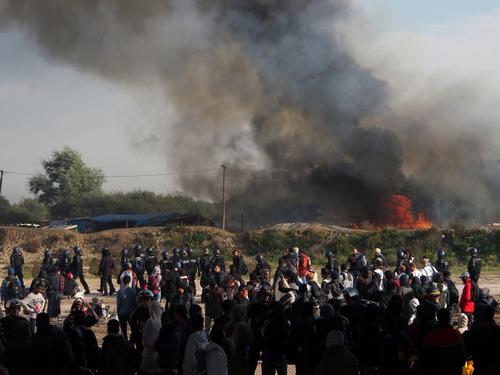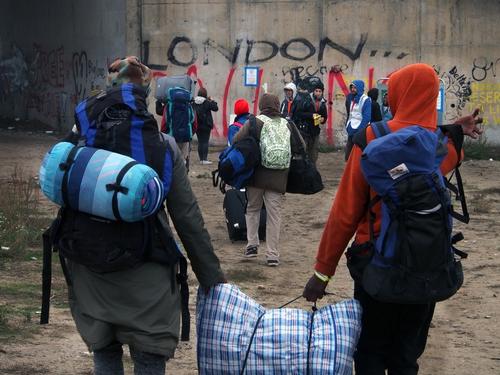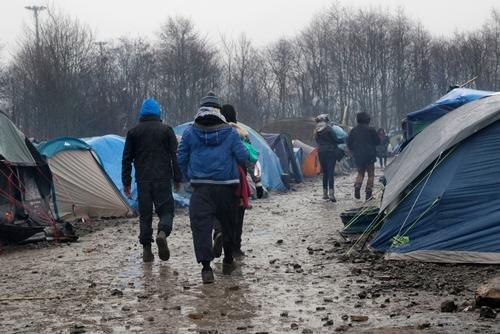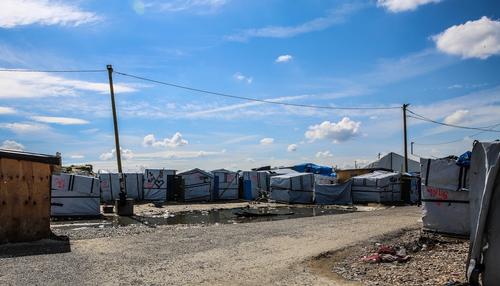Calais, France – While 3,000 adults are said to have left during the first two days of dismantling of the Calais ‘Jungle’, many questions about the fate of unaccompanied minors in the camp remain unanswered. On 25 October, Médecins Sans Frontières (MSF) observed that authorities’ process for separating unaccompanied minors from adults was being handled summarily and solely on the basis of a hasty assessment of physical appearance. Imperatives imposed for managing the flow of migrants appear to be receiving greater priority than the provision of care and protection for children living in the Jungle.
Some 1,100 minors spent last night in shipping containers at the temporary reception centre while fire swept through the rest of the camp. Other children, at risk of abuse and extortion, slept in the camp itself.
Confusion reigned in the ‘Jungle’ throughout the day on Wednesday. In the gigantic hangar where children and adults go to be registered, minors were selected from the adult population solely on the basis of physical appearance. “I was horrified to see adolescents, after a quick look at their faces, being sent back to the adult line,” said MSF head of mission Franck Esnee. “There were no interviews, no translators and no chance of appealing the decisions. This is in total contradiction to the assurances we were given before dismantling began. Out of around forty young people who said they were minors, one-third were not allowed to join the line set aside for children. How many children in the past two days have been turned away or sent with adults to reception and orientation centres?”
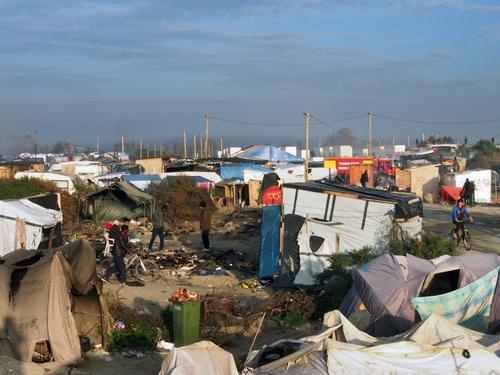
Some minors assisted by MSF say they were turned down because they could not produce documents providing proof of their age. Basing the process of selection on appearance alone is simply not acceptable for young people who are exhausted after months on the road a long way from home.These failings are compounded by the lack of reliable information given to minors in the week before dismantling of the camp began. After opening a reception centre for unaccompanied foreign minors three months ago along with the British aid organisation Refugee Youth Service, MSF has been witness to the plight of dozens of teenagers, forced to traipse from one organisation to the next in search of reliable and clear information about their fate.
What’s more, the fast-track procedure for reuniting children with family in the UK is still not adapted to the reality of each individual minor.
We’re providing assistance to a deaf child whose adult brother interprets for him. If the child goes to join the rest of his family in the UK, this young man will be on his own in France where he doesn’t know anybodyGrégoire Bonhomme
While several hundred children from the Calais Jungle may soon cross the Channel, there is little clarity about what will become of unaccompanied foreign minors who continue to arrive in France in the hope of joining their relatives in the UK.



